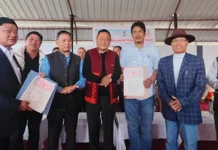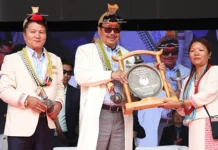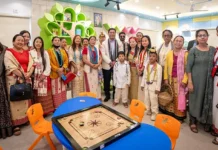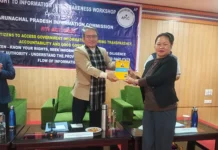RONO HILLS, Mar 25: A three-day national level training of trainers (ToT) on disaster management got underway at Rajiv Gandhi University (RGU) here on Monday.
The objective of the training is to sensitize local representatives and other stakeholders on key concerns related to disasters, and to equip them with the capacity to build a community-based disaster management system.
The programme is being organised by RGU’s Centre for Youth Development and Leadership Studies (CYDLS), in collaboration with Tamil Nadu-based Rajiv Gandhi National Institute of Youth Development (RGNIYD).
Addressing the gathering, RGU Vice Chancellor Prof Saket Kushwaha stressed on the need to respect nature and protect the environment. He advised the trainers to stay updated with the latest information on disaster to play a constructive role.
“India is one of the 10 worst disaster-prone countries in the world, and the Northeast region has witnessed many natural calamities in the recent past, thereby making it imperative to train people on disaster preparedness, response and management,” he said.
NDRF 12 Bn Commandant Umesh Kumar Thapliyal spoke on the importance of interdepartmental coordination in organising ToT programmes.
CYDLS Chairperson Dr KP Singh and RGNIYD Chairperson Dr Indrajeet Singh Sodhi dwelt on the value of organizing training programmes incorporating theoretical and practical aspects related to disaster.
The first day’s sessions were coordinated by Prof Prabhat Kumar Dutta (Institute of Development Studies, Kolkata), Dr AK Sinha (Sashastra Seema Bal, Tezpur), and Dr Saumya from IGNOU, New Delhi.
The thrust of the sessions were on the emerging dimensions of disasters in the Northeast, the role of panchayati raj institutions, and the need to mitigate and respond to disasters.
A panel discussion was held to deliberate on the impact of disasters in the region, and an exhibition on various tools deployed in rescue operations was organised.
About 50 participants, besides faculty members from various colleges and private universities, NGO representatives, NSS programme officers, and members of local governance are participating in the programme.




